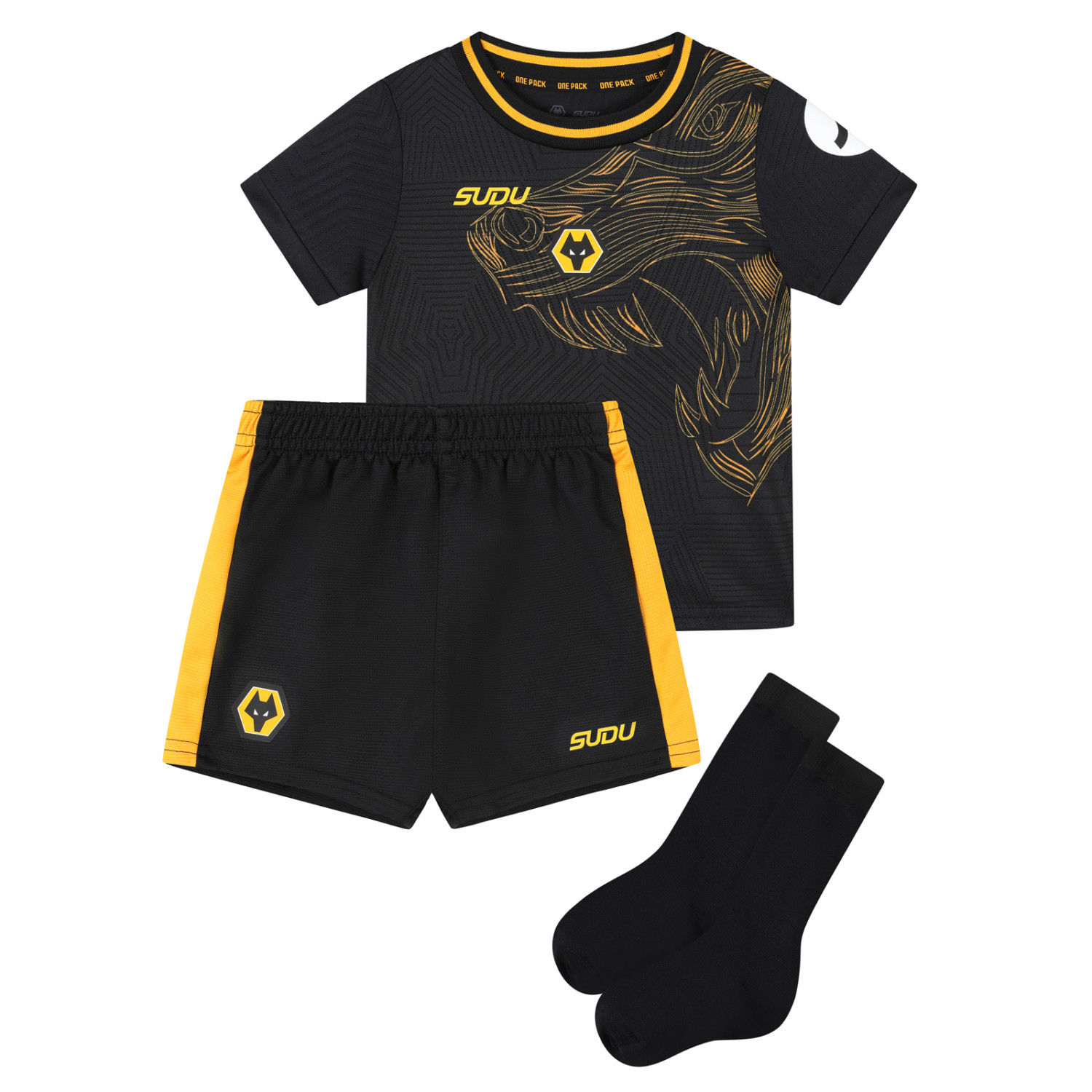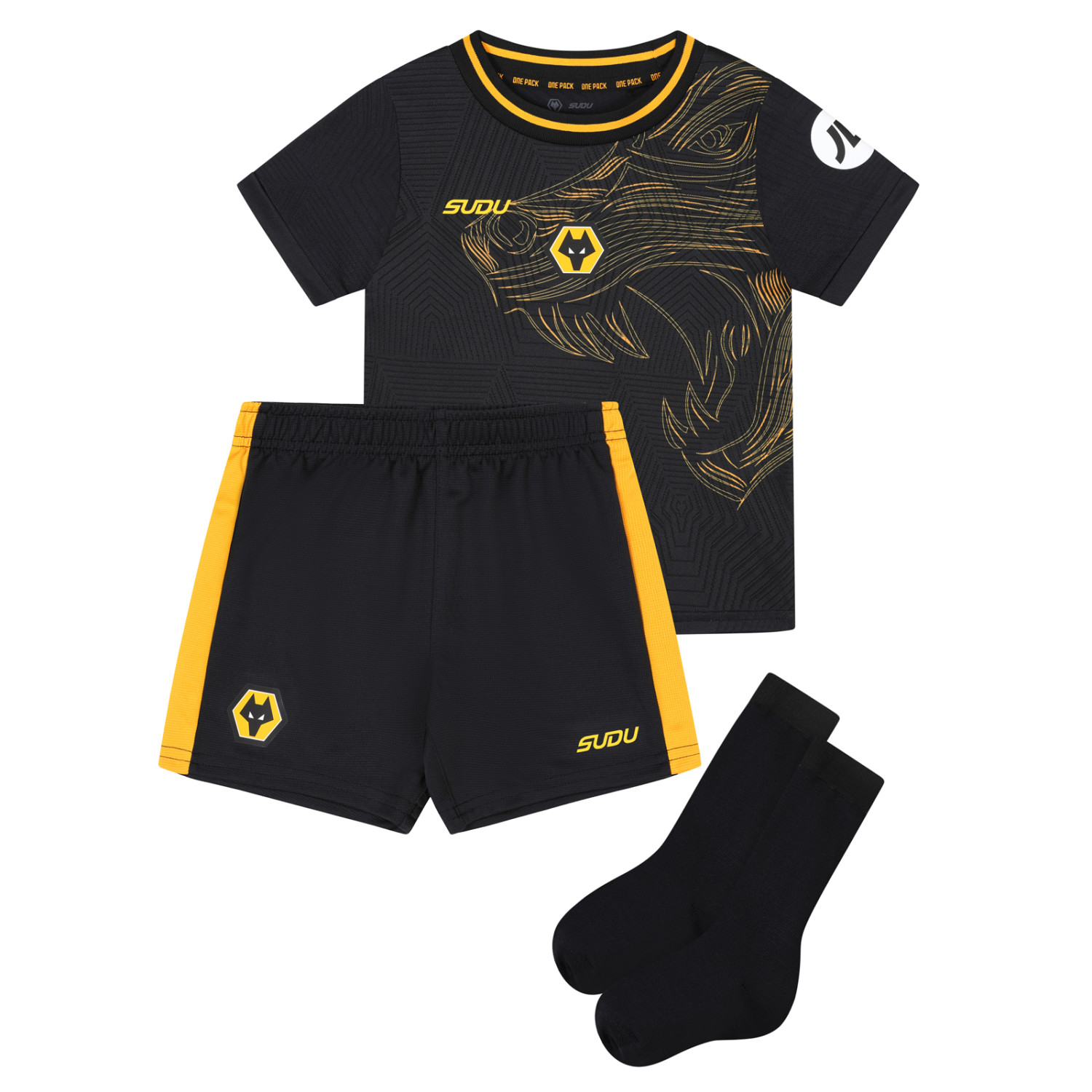Half a century on from Derek Dougan retiring from football, historian and author Clive Corbett has reflected on the legacy left behind by the legendary Wolves forward.
***
The last Saturday in April 1975 and the visit of European Cup finalists Leeds United marked much more than the end of the league season.
The fact that 34,875 packed in to Molineux owed more to the fact that it was the Doog’s last game than to the lure of the Yorkshiremen. In the build-up the Irishman attracted compliments from across the continent.
In Hungary his extraordinary heading ability earned him the nickname of ‘The Irish Torres’: “Dougan was a very clever player with a deceptive turn of speed.” In France he was described as: “elegant on the field as off it, he was the star footballer who demanded attention by sheer presence and personality.” A Swiss journalist praised his work as a leader, both on the field and with the PFA: “Dougan is a born winner. He will succeed in any sphere he chooses to work in - whether it be the communication media or as a football manager.”
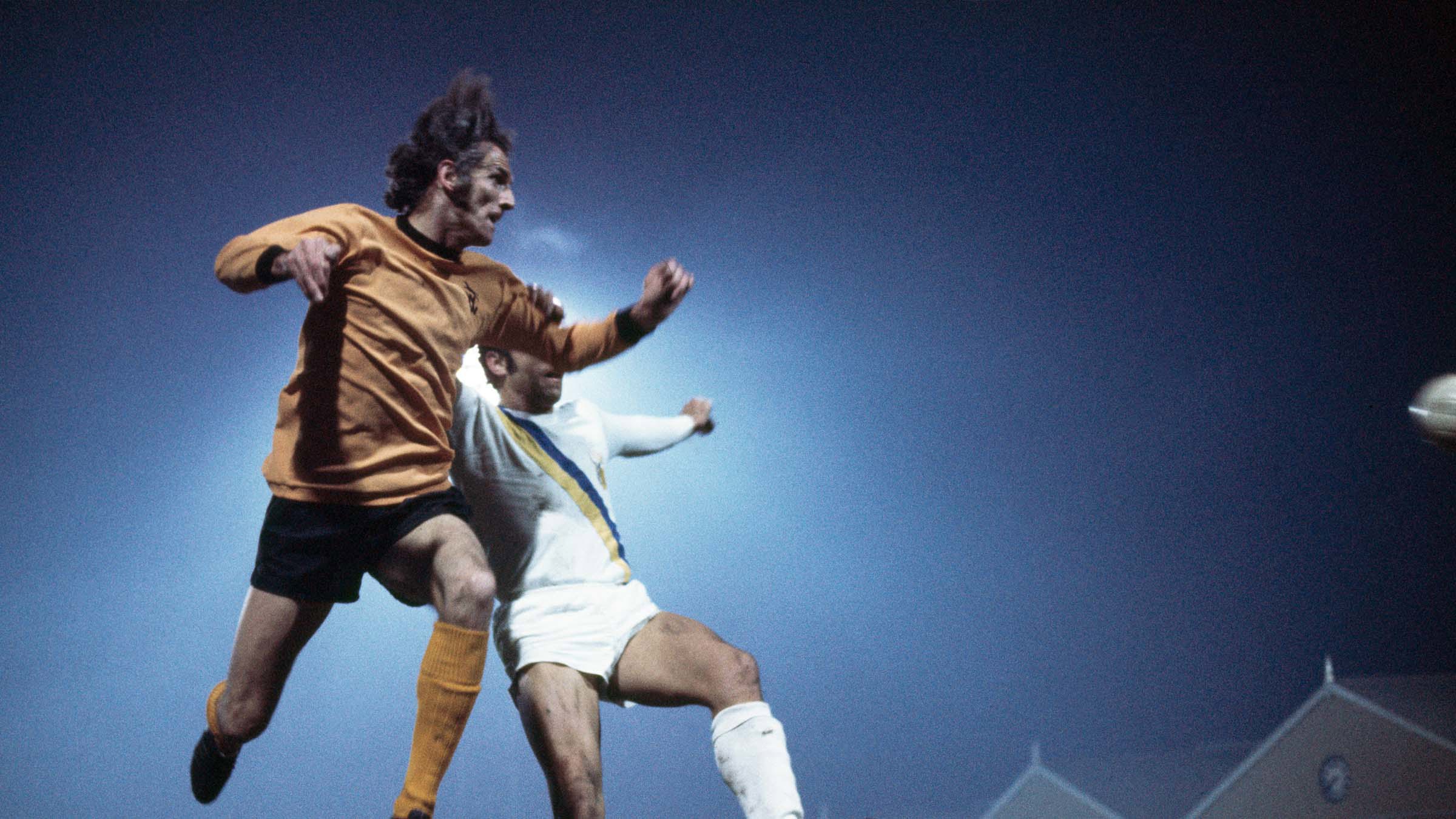
So what about Dougan’s career?
Derek Dougan had joined Wolves in March 1967 from Leicester City for £50,000 at what many considered to be the autumn of his career after a nomadic 14 years in football that took him from Distillery to Portsmouth, then Blackburn Rovers Aston Villa and Peterborough United before a stint at Filbert Street. But what a glorious swansong the Doog enjoyed during eight years at Molineux.
A number of fans decided to travel to Plymouth Argyle to see Dougan’s debut, amongst them Stuart Earle who had founded London Wolves in the previous July. His first home start, against Hull City, was marked by a stunning hat-trick and his nine goals in the final run-in of 11 games helped Wolves to promotion back to the first division. The celebrations at the North Bank end for Dougan’s second were memorable, with Peter Knowles swinging on the crossbar and the Doog managing an athletic pirouette.
Wolves’ new signing left the best until last. Dave Wagstaffe crossed from the right for Terry Wharton to head back across the six yard box. Just as it appeared that the ball would drop behind the Doog, he athletically extended a leg backwards to lob the ball over his own head to create a left footed volley that was gleefully rifled into the roof of the net. For me a hero was well and truly born, and I saw it all courtesy of Dad’s homemade wooden box that raised me up above the crowds behind one of the huge stone exits on the South Bank.
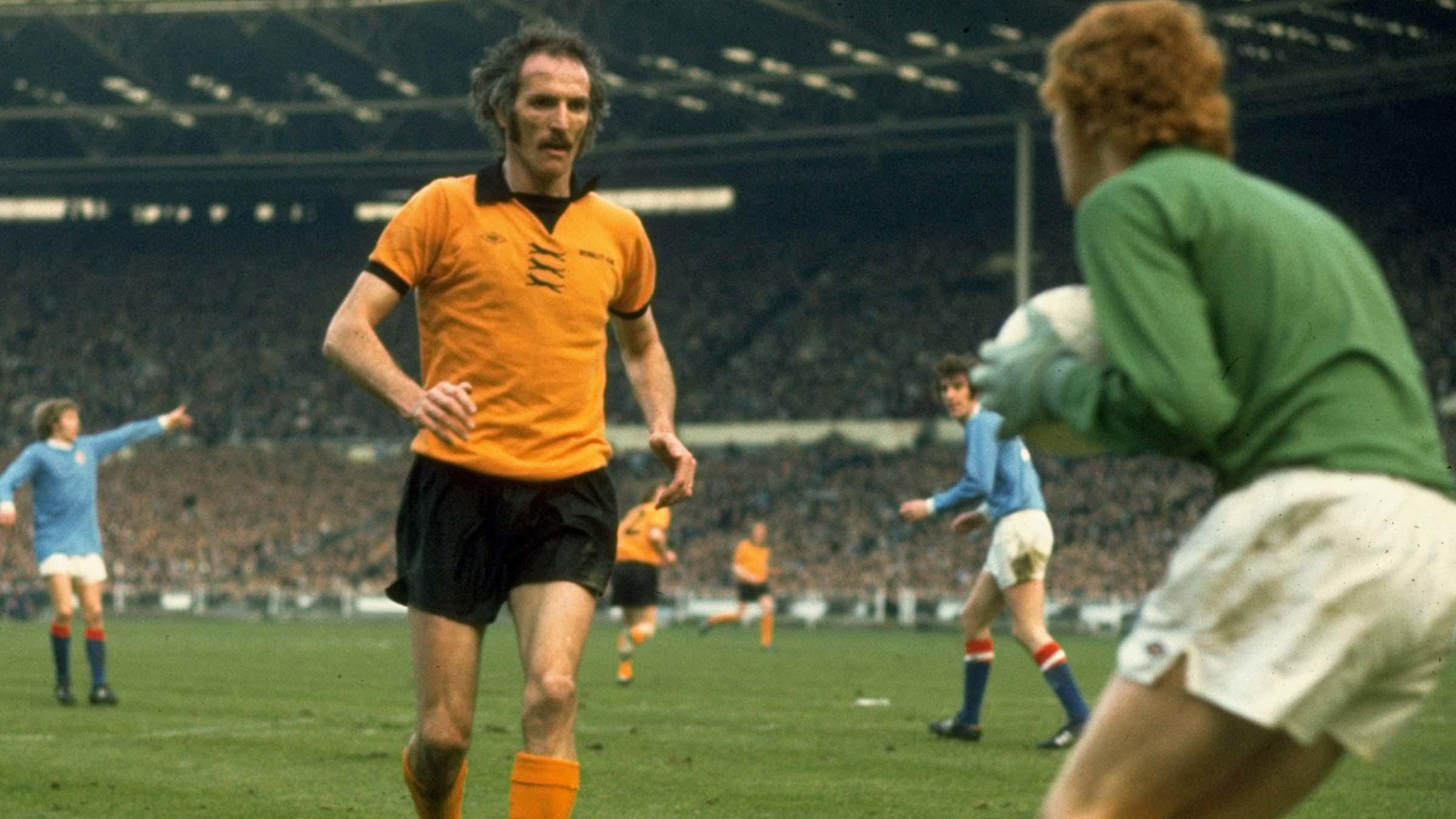
During the summer of 1967, Dougan captained Los Angeles Wolves and scored a goal as they beat Aberdeen 6–5 to become United Soccer Association champions. Dougan scored a total of five hat-tricks during his time at the club and was the Wanderers’ top league scorer in four seasons between 1967/68 and 1973/74. He was part of the team that won the Texaco Cup in 1971, that which narrowly missed out on UEFA Cup success in 1972, lost two semi-finals in the 1972/73 season but won the League Cup in 1974.
The abiding memories for most include Dougan congratulating Derek Parkin (whose career had looked in doubt the previous season). Derek and Denis Law, arms around each other with the latter in Frank Munro’s shirt. The Doog remembered: “You walk off the pitch and are friends, it’s all about rapport.”
The Richards/Dougan combination had been at its peak in the previous, 1972/73 season, when they shared 55 goals (36 from Richards). The Doog claimed: “We were most certainly the best striking duo in post-war years. It was a chemistry and a formula sent to us from heaven. We were better than Keegan and Toshack, they were not in the same league as us since Richards was that little bit quicker.”
The 18 European appearances that the Doog racked up between September 1971 and October 1974 remain a club record. His 12 goals in that period still make him Wolves’ all-time top European scorer, with Raul Jimenez second with 10 in 15, and Peter Broadbent with 7 in 12 between 1958 and 1961.
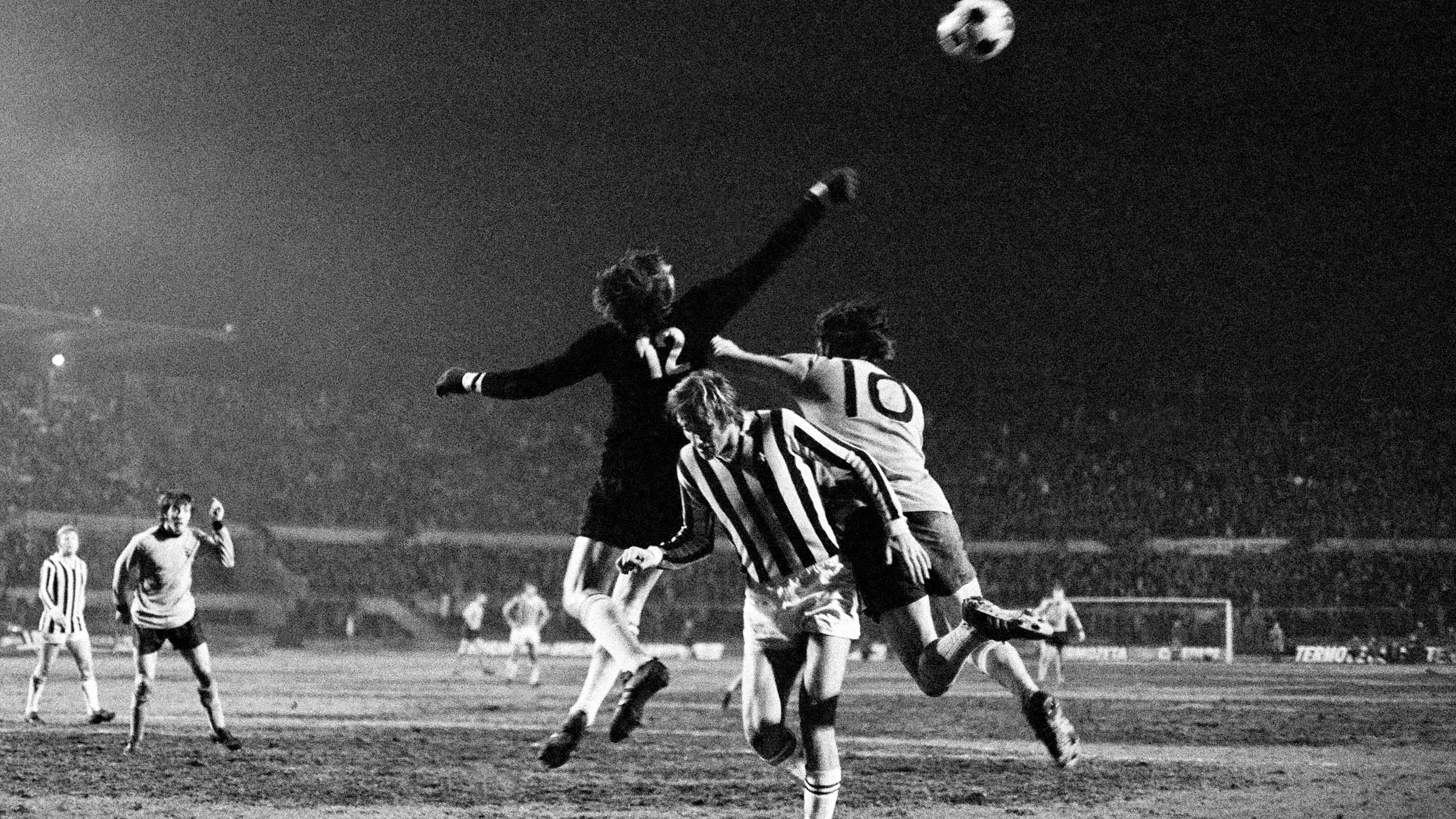
Capped by his country at all levels, Dougan made his senior international debut for Northern Ireland at the 1958 World Cup and went on to score 8 times in 43 games. In all Dougan had rattled up 622 league appearances and 239 league goals with seven different clubs. When he scored against West Ham in August 1972 he became the first Irishman to score 200 league goals.
He became Kettering Town’s player-manager in 1975 and after being touted as a possible Wolves manager in the late ,1970s he returned at the head of the consortium that took Wolves out of liquidation in August 1982. He served as chairman under the infamous Bhatti brothers and resigned on 17 January 1985 as Wolves hurtled towards the third division under Tommy Docherty. Chair of the PFA between 1970 and 1978, football pundit, writer, an independent candidate for Belfast East in 1997 and later involved in UKIP, Derek lived in Wolverhampton until his death.
For all of the faults of this complex personality, I for one will never forget the privilege of seeing every one of Doog’s home games and numerous away matches – we will never see his like again.
The Doog firmly cemented his relationship with the fans with the following pre-match comments in the Express & Star: “In all those years and ramblings I was looking for a club where I could express myself without feeling inhibited, a club which responded to my particular style and did not try to force me into a mould. I want to let Wolves supporters know how much their encouragement and support have meant to me over the past eight years. Even when I or the home side had a bad day, the vocal support has kept us going, especially that uplift from the North Bank.”
Dougan struggled with back injuries that restricted him to nine appearances in 1974/75, but his big farewell came at the last game of the season. Express & Star editor Mark Kersen presented the Doog with a silver salver before kick-off, but it would be some 65 minutes before he was allowed to join the action as replacement for Steve Kindon.
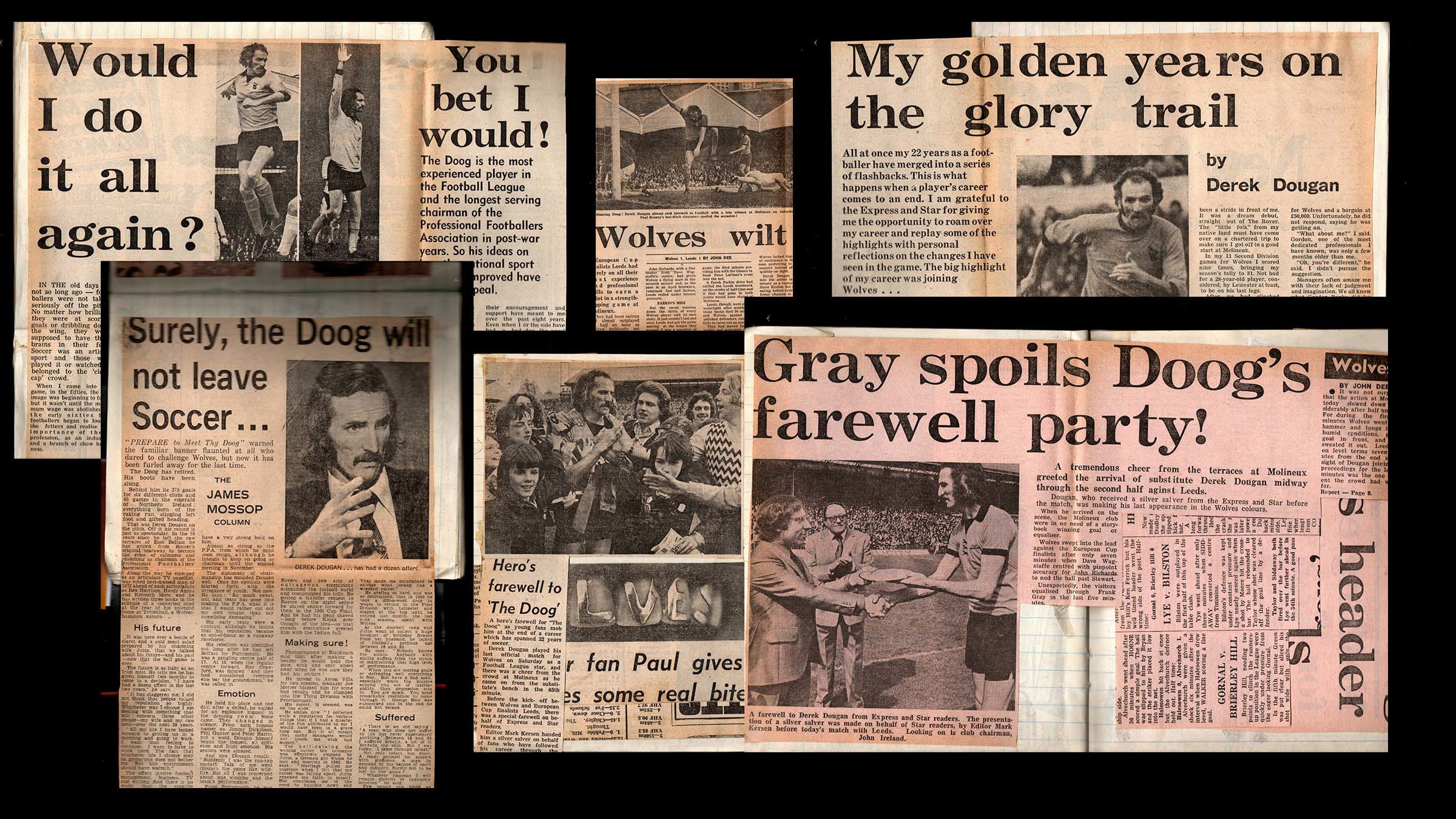
Leeds were outrun and outplayed for the first half-hour as Wolves set about taking advantage of the visitors’ exertions in Barcelona just three days earlier (they had drawn a semi-final European Cup match to win on aggregate). After seven minutes John Richards scored with a fine header from a Dave Wagstaffe centre. Just on half-time Derek Parkin rattled the Leeds crossbar with a fierce shot but Wolves could not add to their lead.
When Dougan did enter the fray he almost made it a fairy tale ending when David Stewart dropped a blockbuster from Kenny Hibbitt, but the Irishman was denied when Paul Reaney cleared to avert the danger. Frank Gray scored an equaliser in the 83 minute, heading Peter Lorimer’s cross home. The end of the match saw a hero’s farewell for the Doog as he was mobbed by fans marking the end of a career spanning 22 years.
Dougan would be honoured with a testimonial match between Wolves and a Don Revie Select XI on Monday 20th October 1975. Unfortunately, the big match was something of a damp squib as it ended goalless, but even this could not tarnish a magical occasion.
25,658 payed their respects to the Doog, a turn out that is put into perspective when one compares it against a Wolves season’s average attendance for 1974/75 of 23,377 and 23,228 for the first seven games of 1975/76.

Views of the Doog
Dave Wagstaffe described his signing as: “an absolute master stroke by Ronnie Allen. People had written Derek off, not so much as a footballer but as a trouble maker, really he was frowned upon. He was on the other side from the managers, but Ronnie took this chance on him. Derek Dougan and Wolves were a marriage made in heaven.”
John Holsgrove: “The Doog, Bobby Thomson, Les Wilson and I became good friends and were called the ‘tea set’ as we had tea every day after training.”
Derek Parkin: “He was larger than life and a pleasure to be with - you never came away disappointed. A lot of people got the wrong end of the stick about him. He was a very thoughtful man.”
Mike Bailey: “Legend isn’t too strong a word to describe Derek. He was a big-game player too - the bigger the better for him and he really came alive in our European games.”
Peter Knowles: “I’ll never be the ‘King’ as long as Dougan is here.”
John Dee in the Sporting Star tried to assess the appeal of, ‘Doog, the people’s man, a man of the people’. He wrote: “What made Dougan such a hero at Molineux? Perhaps it was because Doog thought as much about those who idolised him as they did about their King. On the field the fans saluted him, off the field he would go to extremes to help them - and many others as well.”
The Wolves record of Alexander Derek Dougan - 32nd in the all-time list of club appearance makers
- Born in Belfast on 20th January 1938, died in Wolverhampton on 24th June 2007.
- Wolves 1967 to 1975. Club Honours: Division 2 runners-up (1966/67), British Isles (Texaco) Cup (1971), UEFA Cup runners-up. (1972), League Cup (1974). Hall of Fame (2011).
- Appearances (Goals) | League 258* (95), FA Cup 12 (4), League Cup 22 (7), Other 31** (17). Total 323*** (123).
*includes 14 as substitute **includes 2 as substitute ***includes 16 as substitute





